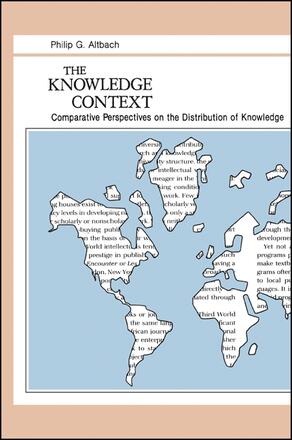
The Knowledge Context
Comparative Perspectives on the Distribution of Knowledge
Alternative formats available from:
Description
The Knowledge Context adds an important, new dimension to the study of publishing and the distribuition of knowledge in the international arena. Drawing from more than a decade of research, Philip G. Altbach examines a variety of issues including international copyright, textbooks, technological developments in publishing, and the role of book distribution. Those interested in publishing and the dissemination of knowledge will find this a helpful resource for understanding this critical enterprise.
Philip G. Altbach is Professor in the Department of Educational Organization, Administration and Policy Studies, and Director of the Comparative Education Center at State University of New York at Buffalo. He is also the editor of a SUNY Press book publication series, Frontiers in Education.
Reviews
"Phil Altbach presents well the dilemma faced by Third World countries in their search for wider access to the knowledge and technical know-how produced in the industrialized nations. He makes a convincing case for the need of Third World nations to develop their own publishing skills and institutions for a variety of important reasons. Obviously sympathetic to the position of Third World countries at what he calls the periphery of the knowledge context, Altbach nevertheless strives for an even handed description of the roots of their difficulties, including an impartial appraisal of the much debated issue of the merits of state publishing versus private sector initiatives."—Peter H. Neumann, President, Peter H. Neumann Associates, Inc.